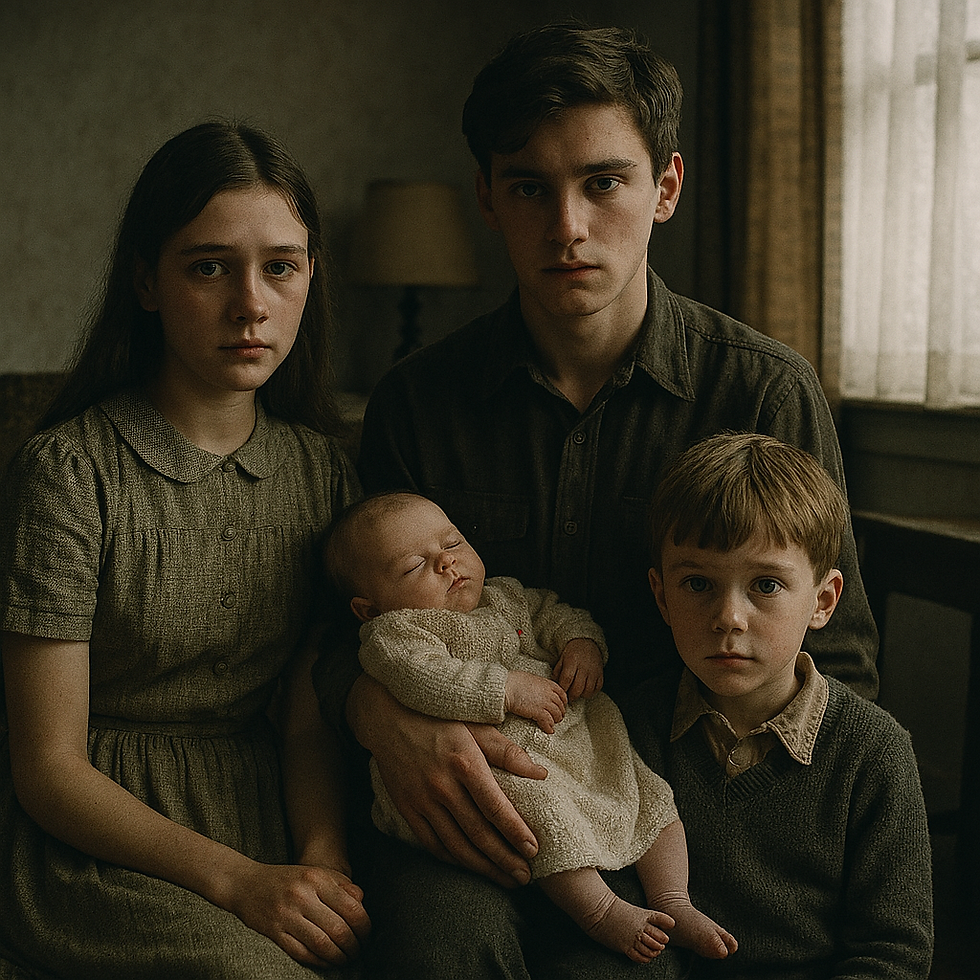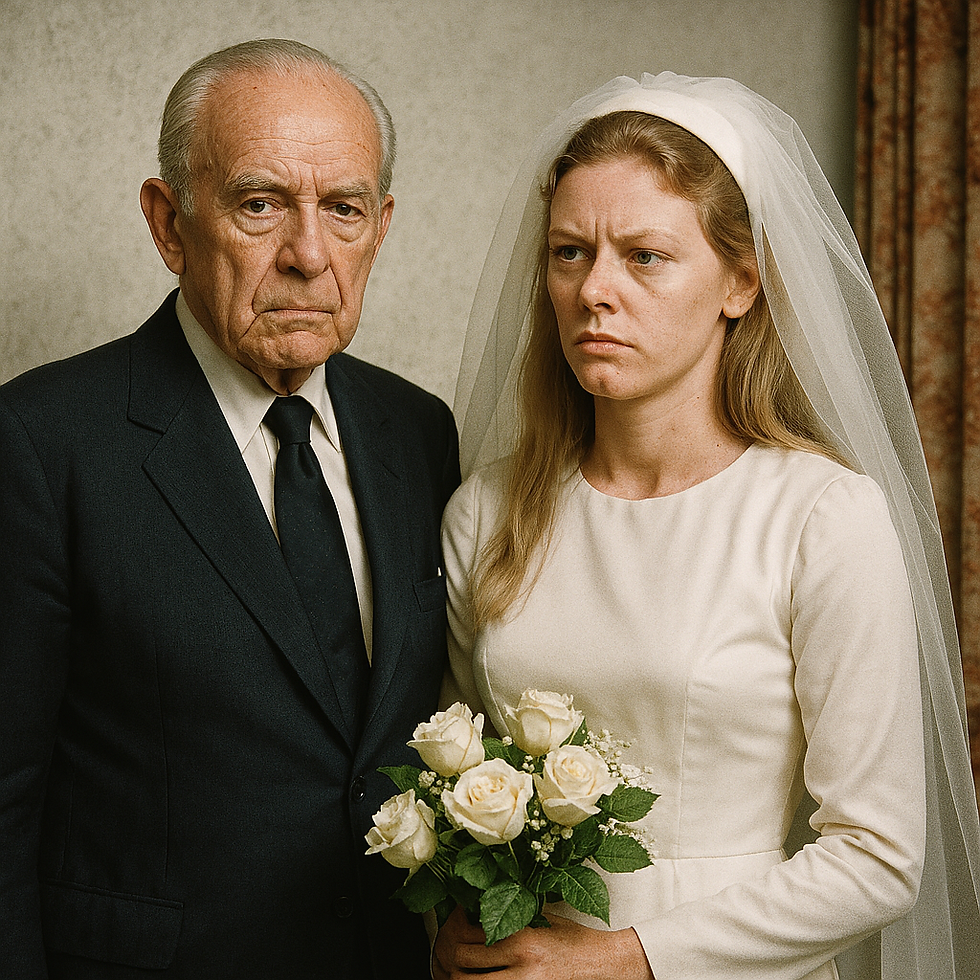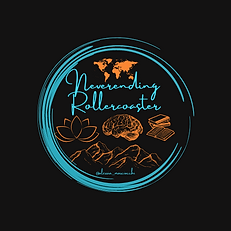Aileen Carol Wuornos: When trauma breeds violence
- Alessia Masciocchi
- Oct 31, 2025
- 5 min read
Updated: Nov 16, 2025
Content Warning: This article discusses child abuse, sexual violence, and murder.
Semi-realistic photos created with artificial intelligence.Hi beauties,
Hi beauties,
Today's topic is about Aileen Carol Wuornos (/ˈwɔːrnoʊs/; born Pittman; February 29, 1956 – October 9, 2002), who was an American serial killer.
This article aims to explore Wuornos' criminal life, which was likely caused by her traumatic experiences. I hope you'll enjoy this post!

Here you can find a brief table containing the most important facts about Wuornos.
Born | Aileen Carol Pittman February 29, 1956[1] Rochester, Michigan, U.S. |
Died | October 9, 2002 (aged 46), Florida State Prison, Florida, U.S. |
Cause of death | Execution by lethal injection |
Other names | Lee Blahovec |
Born | Aileen Carol Pittman February 29, 1956[1] Rochester, Michigan, U.S. |
Died | October 9, 2002 (aged 46), Florida State Prison, Florida, U.S. |
Cause of death | Execution by lethal injection |
Other names | Lee Blahovec |
| Sandra Kretsch |
| Susan Lynn Blahovec |
| Cammie Marsh Greene |
| Lori Kristine Grody |
Spouse | Lewis Gratz Fell (m. 1976; ann. 1976) |
Partner | Tyria Moore (1986–1991) |
| Sandra Kretsch |
| Susan Lynn Blahovec |
| Cammie Marsh Greene |
| Lori Kristine Grody |
Spouse | Lewis Gratz Fell (m. 1976; ann. 1976) |
Introduction
On October 9, 2002, Aileen Carol Wuornos (/ˈeɪliːn ˈwɔːrnoʊs/) was executed by lethal injection in Florida, marking the end of one of America's most troubling criminal cases.
Between 1989 and 1990, she murdered seven men along Florida's highways, earning her place as one of the nation's most infamous female serial killers. Yet her story is far more complex than a simple tale of evil—it's a devastating chronicle of how severe childhood trauma, untreated mental illness, and systemic failures can converge to create catastrophic violence.
Wuornos's life forces us to confront uncomfortable questions about the relationship between victimhood and violence, the role of mental health in criminal behaviour, and society's responsibility toward its most vulnerable members. Her case remains relevant today, not merely as a true-crime fascination but as a stark illustration of preventable tragedy.
FBI profiler Robert Ressler (/ˈrɛslər/), who coined the term "serial killer," noted how unusual she was among female offenders—she killed strangers in face-to-face confrontations using traditionally masculine methods, breaking the mould of typical female serial killers who target intimate partners or dependents.
Part I: A life marked by abandonment and abuse
Born into chaos (1956-1960)
Aileen Carol Wuornos entered the world on February 29, 1956—a leap-year baby born in Rochester, Michigan.

From her first breath, chaos surrounded her. Her mother, Diane, was only 14 years old when she married 18-year-old Leo Pittman in 1954. The marriage disintegrated before Aileen's birth, and at just 16, Diane gave birth to her daughter. Aileen would never meet her father, a man whose shadow would loom ominously over her life. Leo Pittman was later imprisoned for life in 1967 for kidnapping and raping a child. He was diagnosed with schizophrenia—a dark hereditary echo that would manifest in his daughter's own mental health struggles.

In January 1960, when Aileen was not yet four years old, her mother made a decision that would shape the trajectory of her daughter's entire life: she abandoned her children. Aileen and her brother, Keith, were left with their maternal grandparents, Lauri and Britta Wuornos, both Finnish Americans who struggled with severe alcoholism. The couple legally adopted the children in March 1960, but what should have been a sanctuary became another chamber of horrors.
The nightmare behind closed doors

Life in the Wuornos' household was a study in brutality. Young Aileen endured horrific abuse at the hands of her grandfather—the very person who should have protected her. Lauri Wuornos was sexually assaulted and beaten repeatedly, forcing her to undress before administering beatings. These experiences of violation and powerlessness would leave permanent psychological scars, fundamentally altering how she viewed herself, relationships, and the world around her.
The abuse shattered Aileen's developmental trajectory. By age eleven, she had already learned that her body was currency in a cruel marketplace: at school, she began trading sexual activities for cigarettes, drugs, and food - a heartbreaking demonstration of how abuse had warped her understanding of human connection and self-worth. Even more disturbingly, she engaged in sexual activities with her brother Keith, a pattern that speaks to the profound dysfunction within the household.
Teenage trauma and homelessness (1967-1971)
At fourteen, Aileen's nightmare intensified when a family friend raped her, resulting in pregnancy. Imagine the terror of a fourteen-year-old girl, already traumatised by years of abuse, facing pregnancy alone. On March 23, 1971, she gave birth to a son at a home for unwed mothers. The baby was immediately placed for adoption—another loss, another abandonment in a life already defined by them.
The months that followed brought cascading devastation. Her grandmother died of liver failure, removing one of the few adult presences in her life. Shortly after, she dropped out of school. Then, at fifteen, her grandfather threw her out of the house entirely. Aileen found herself living in the woods near her former home—not as an adventure, but as a desperate fight for survival.

To survive the Michigan winters and feed herself, fifteen-year-old Aileen turned to prostitution. This wasn't a choice born of agency or opportunity, but of absolute desperation. The woods became her home, the streets her workplace, and her body the only resource she possessed. This period marked the beginning of a life lived entirely on society's margins, where violence and exploitation were constant companions.
Early Criminal Activity and a Failed Marriage (1974-1986)
By age eighteen, Aileen's life had become a cycle of arrests and instability. In May 1974, she faced her first arrest in Jefferson County, Colorado, for DUI, disorderly conduct, and firing a pistol from a moving vehicle. She failed to appear for her court date—a pattern of running that would characterise much of her life.
In 1976, at age twenty, Aileen made her way to Florida and entered a bizarre marriage with Lewis Gratz Fell, a 69-year-old yacht club president. Their union was notable enough to make the society pages, but the marriage descended into chaos within weeks. Wuornos's violent behaviour—hitting Fell with his own cane, getting into bar fights—led to a restraining order. The marriage lasted only nine weeks before being annulled, another relationship destroyed by her inability to maintain stability.

That same summer, after returning to Michigan, she was arrested for assaulting a bartender with a cue ball. When her brother Keith died of oesophageal cancer in July 1976, she inherited $10,000—money that could have been transformative. Instead, she quickly squandered it on luxuries, including a car she soon wrecked. The pattern was clear: Aileen possessed no ability to plan for the future, to make decisions that served her long-term interests, or to escape the gravitational pull of self-destruction.
Between the ages of fourteen and twenty-two, Wuornos attempted suicide six times, including shooting herself in the stomach in 1978. These weren't mere cries for help—they were desperate attempts to escape a psychological pain that felt unbearable. The following years saw escalating criminal behaviour: armed robbery of a convenience store in 1981, forging checks in 1984, and multiple incidents involving weapons and stolen vehicles. Each arrest was a missed opportunity to intervene, to recognise that this young woman needed help, not just punishment.
Meeting Tyria Moore: A glimpse of connection (1986)
In 1986, something remarkable happened in Aileen's chaotic life. At a Daytona Beach gay bar called Zodiac, thirty-year-old Aileen met Tyria Moore, a twenty-four-year-old motel maid. Their connection was immediate and intense. For perhaps the first time in her life, Aileen experienced what she later described during her trial as love "beyond imaginable." They moved in together, with Aileen supporting them both through prostitution.

Even this relationship, however, existed on a knife-edge. In 1987, they were detained together for an alleged assault with a beer bottle. The relationship that should have been Aileen's salvation instead became entangled with her dangerous lifestyle and deteriorating mental state. Yet Aileen's feelings for Moore remained profound. Even from death row, facing execution, she proclaimed her enduring love for the woman who would ultimately help secure her conviction.



Comments